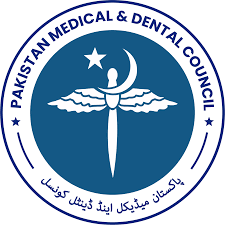New-Age Challenges in Dental Research
DOI:
https://doi.org/10.52442/jrcd.v4i1.76Abstract
Dental research is essential to enhancing treatment techniques, fostering innovation, and boosting oral health care. However, there are several obstacles in the way of dental researchers' advancement, making it an uphill battle to search for ground-breaking findings(1). To offer light on the complexities that researchers encounter in their pursuit of better oral health outcomes, we examine some of the challenges in dentistry research in this article.
Financial resource constraint is one of the biggest obstacles to dentistry research. Dental research frequently faces competition from other medical specialties for financing, which makes it challenging for researchers to get enough support for their initiatives. Insufficient funds have the potential to obstruct clinical studies, prevent the creation of new technologies, and delay the advancement of knowledge(1).
A unique set of difficulties arises because dental research mostly depends on patient participation. It can be difficult to recruit a representative and diverse sample since some people may be reluctant to participate in long-term or therapeutic investigations. Furthermore, it can be difficult to guarantee patient adherence to study guidelines, which compromises the validity of research findings(2).
Like any scientific endeavour, dental research needs to abide by strict ethical guidelines. It is a difficult effort to strike a balance between the advancement of science and the moral treatment of study subjects. When trying to increase knowledge and enhance medical care, researchers must negotiate complicated ethical rules, secure informed consent, and protect participant privacy(3).
A longitudinal approach is necessary for many dental problems and therapies, which means that researchers must monitor patients over long periods of time. The introduction of new technologies has caused a steady evolution in the dentistry. While new developments in technology create bright prospects, they additionally create difficulties for researchers seeking to stay current and modify their approaches. Modern technologies need a lot of resources and knowledge to be integrated into research processes(4).
Dental research frequently crosses over into other scientific and medical fields, necessitating interdisciplinary cooperation and integration of different areas of knowledge. Although multidisciplinary research can produce comprehensive insights, coordinating efforts and bridging gaps between several fields of study can be difficult. Working together and having effective communication are essential to overcoming these obstacles(5).
Dental research is an exciting area of study that has the potential to completely transform oral health care. Nonetheless, scientists face different challenges, including financial limitations, moral contemplations, the changing idea of innovation, and the prerequisite for interdisciplinarity. Researchers, financing organizations, and the whole academic community should cooperate to beat these obstacles. By watching out for these challenges head-on, the dental researchers can continue making progress in the world of dental research.




